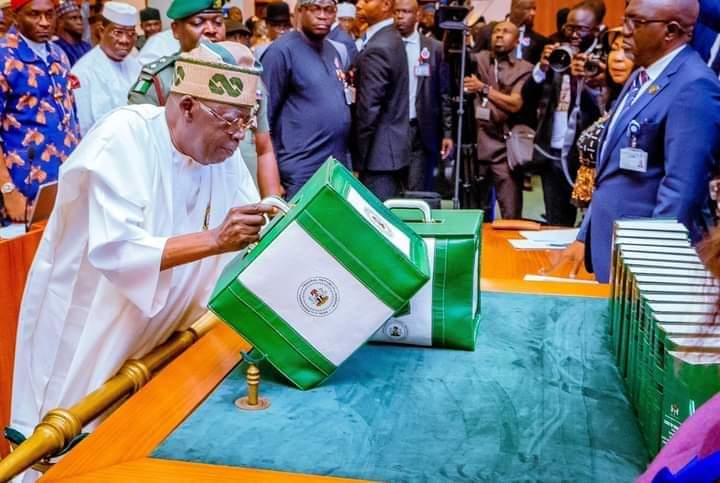President Bola Tinubu plans to present a ₦6.6 trillion supplementary budget to the National Assembly for consideration in July.
The Senate spokesperson, Yemi Adaramodu, stated that the ₦6.6 trillion extra budget was still being computed by the administration but would be handed to the National Assembly once it resumed on July 2.
“The budget will be sent any time we resume after the Sallah recess. I believe the bill and other important executive communication will be sent to the National Assembly when we resume in July. The budget size is ₦6.6 trillion.”
When asked about the budget size, considering that the minister said that the supplementary budget would fund part of the coastal road, he stated, “The budget size is ₦6.6 trillion.”
Reports indicate that President Bola Tinubu will likely borrow another ₦6.6 trillion in 2024.
This decision is directly tied to the country’s planned allocation of ₦5.4 trillion (£3.7 billion) to maintain fixed petrol prices, a 50% rise over 2023, according to a draft document obtained by Reuters.
The “Accelerated Stabilisation and Advancement Plan” (ASAP), developed by the finance ministry in partnership with private sector executives and economists, seeks to address the obstacles posed by policies aimed at stimulating economic development.
In May of last year, President Tinubu abolished a popular but costly petrol subsidy in a historic measure hailed by investors as a way to increase economic activity. However, the move resulted in a doubling of gas prices, greater transportation expenses, and rising inflation, causing anger among motorists.
Despite criticism from worker unions about growing living costs as a result of his changes, Tinubu has promised to stick to his policies.
“At present rates, expenditure on gasoline subsidies is expected to exceed ₦5.4 trillion by the end of 2024. This contrasts unfavourably with ₦3.6 trillion in 2023 and ₦2.0 trillion in 2022,” the finance ministry claimed in the draft.
Presidential aide Bayo Onanuga acknowledged that Tinubu received the document, underlining that it was still a proposal with recommendations for strengthening Nigeria’s economy.
